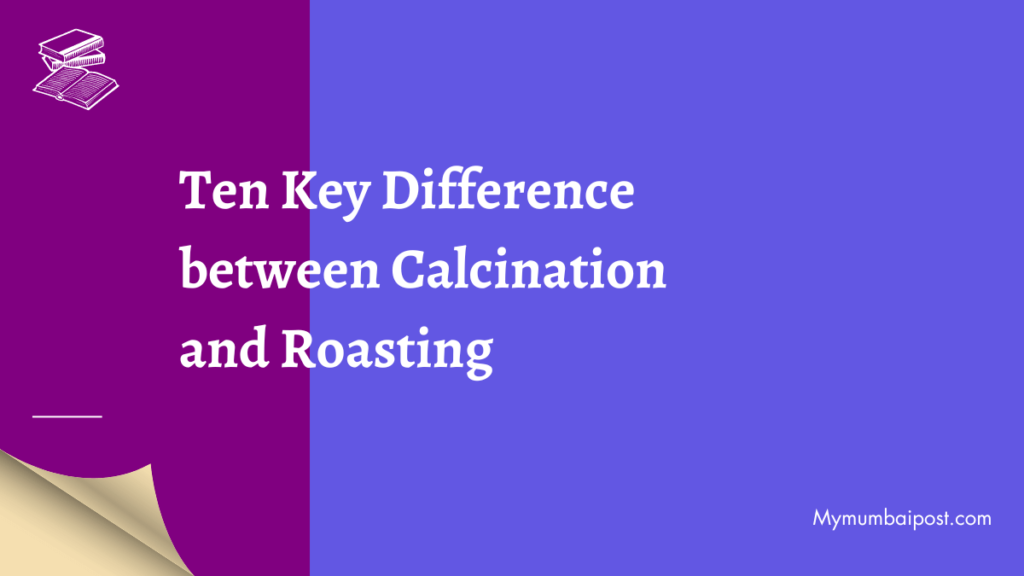
Discover Ten Key Difference between Calcination and Roasting
Calcination and roasting are two thermal processing techniques used in metallurgy, ceramics, and chemistry. While both involve heating a material to a high temperature, there are notable difference between Calcination and Roasting objectives, processes, and outcomes. Let’s explore them.
Difference between calcination and roasting
Calcination and roasting are two metallurgical processes that are commonly used in industry for various purposes. Although they both involve heating materials, there are significant differences between them. Here are the ten main differences:
Definition: Calcination is the process of heating a material in the presence of air or oxygen to convert it into its oxide or carbonate. Roasting is the process of heating a material in the presence of oxygen or air to remove impurities.
Temperature: Calcination is done at a lower temperature than roasting. The temperature for calcination ranges from 700 to 900°C, while the temperature for roasting ranges from 900 to 1200°C.
Reaction: Calcination involves a simple reaction between the material and oxygen to produce its oxide or carbonate. Roasting involves a more complex reaction between the material, oxygen, and impurities, resulting in the removal of impurities.
Purpose: Calcination is used to convert a material into its oxide or carbonate, while roasting is used to remove impurities from a material.
Materials: Calcination is primarily used for inorganic materials such as ores, minerals, and ceramics. Roasting is used for organic materials such as sulfides and carbonates.
Chemical change: Calcination results in a chemical change in the material, while roasting may or may not result in a chemical change.
Atmosphere: Calcination is usually carried out in an oxidizing atmosphere, while roasting can be carried out in both oxidizing and reducing atmospheres.
Also Read: Discover the Ten Difference between Partnership and Company
End product: The end product of calcination is usually an oxide or carbonate, while the end product of roasting is a purified material with reduced impurities.
Process duration: Calcination is a shorter process compared to roasting. Calcination usually takes a few hours, while roasting may take several days.
Energy requirement: Calcination requires less energy compared to roasting due to the lower temperature used.
Understanding the difference between calcination and roasting is important for selecting the right method for a particular application. Calcination converts a material into its oxide or carbonate, while roasting removes impurities from a material. The processes differ in temperature, reaction, materials, chemical change, atmosphere, end product, process duration, and energy requirement.
Explore more by watching this video:
https://www.youtube.com/watch?v=YN_6sOym044